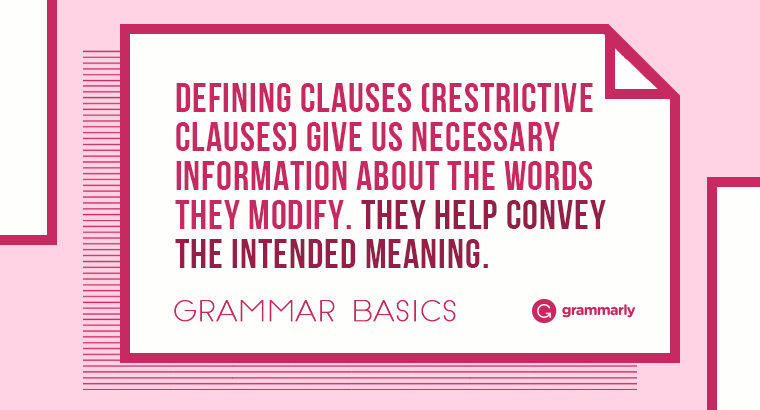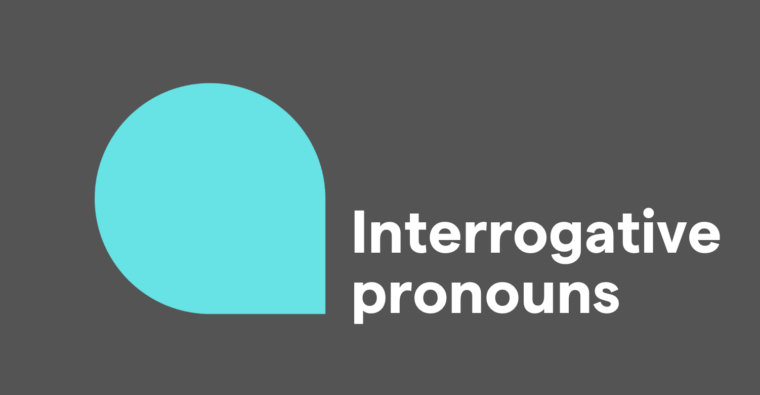
Sentences may contain many different types of clauses. Defining clauses, also called restrictive clauses, serve an important function. What role do they play in sentences and how does it relate to the name of these clauses?
First, let’s lay some groundwork. A subject, verb, and a relative pronoun (who, whose, where, when, which, or that) distinguish relative clauses from other types of clauses, though not all three are needed. Because these clauses are descriptive, some call them adjectival or adjective clauses. Relative clauses fall into two subtypes—defining and nondefining (or restrictive and nonrestrictive).
Defining clauses (restrictive clauses) give us necessary information about the words they modify. They help convey the intended meaning. Let’s examine some sentences with and without defining clauses.
The woman bought a lottery ticket. (You don’t know which woman.) The woman who won last year’s jackpot bought a lottery ticket. (You specify which woman purchased the ticket.)
The cantaloupe is ripe. (You don’t know which specific cantaloupe is ripe.) The cantaloupe that I grew in my garden is ripe. (The defining clause lets you know which cantaloupe is ripe.)
Sometimes people make mistakes with defining clauses. For example, they might put commas around a defining clause. However, you do not need to set off defining clauses with commas or any other punctuation.
Do you see how these types of clauses define the nouns they modify? It’s easy to understand their name. Now, what are nondefining clauses? You might already have a good guess!






